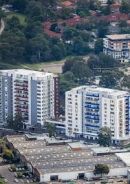| Editorial |
| Beirut Port nightmare won’t fade after two years |
 |
Beirut Port nightmare won’t fade after two years AFTER the physical shockwaves from the August 4, 2020, Beirut Port explosion had settled, the political and emotional fallout began. That fallout continues to this day as the judicial investigation in the port explosion is mired in legal and political machinations. Some Lebanese, including Members of Parliament, have been demonstrating in protest against the Supreme Judicial Council, which they thus obstructing investigating Judge Tarik Bitar from carrying out his mission. Their worst fears have been realised. Justice, it seems, will be denied to the families of the 218 victims of the explosion, described as the largest non-nuclear explosion in history and which damaged an entire city. Already grieving victims tried to storm the Justice Palace as top public prosecutor Judge Ghassan Oueidat sought to block Judge Bitar’s efforts. Change Lebanon and opposition MPs have described efforts to block the investigation as “a devastating coup that began with the assassination of justice”. They have a point. Once again, the country’s political elite have shown they could not care about governing the country for the people but rather want to further their own selfish ambitions. The Forces of Change Coalition pointed out the illegality of Judge Oueidat’s decision to return to the investigation after he had stepped down due to a close relationship with one of the defendants (and politician) Judge Oueidat’s actions have painted him as the face of what is going wrong with this investigation and, even more so, the face of what is wrong with Lebanon’s judicial and political systems. The tug-of-wat between judges Oueidat and Bitar looks likely to made a bad situation even worse. No wonder there has been call for outside intervention; the Free Patriotic Movement warned of this possible outcome when it said the “regime” is not immune to European judicial action. FPM leader Gebran Bassil described the country’s situation as “disturbing” with the political void caused by a vacant presidency unable to provide much-needed leadership. Indeed, even Maronite Patriarch, Cardinal Mar Beshara Boutros Rahi considers that the governing authority does not exist in Lebanon due to the non-implementation of the Taif Agreement. The Patriarch, incidentally, has thrown his support to Judge Tarek Bitar, calling on him to “continue his work”. This is not a crisis Lebanon needs now. It has enough to deal with: cost of living, corruption, displaced Syrians within its borders. The 2750 tonnes of ammonium nitrate that had been stored at Beirut Port was a timebomb of another kind. Look how that turned out for Lebanon. Editor in Chief |
 |
 |
 |
|
|
|||||||||
|
|||||||||
















